Dell XPS 13 vs MacBook Air: which is the king of laptops?
With 2025 being an absolute stellar year for laptops, how do these two contenders stack up?
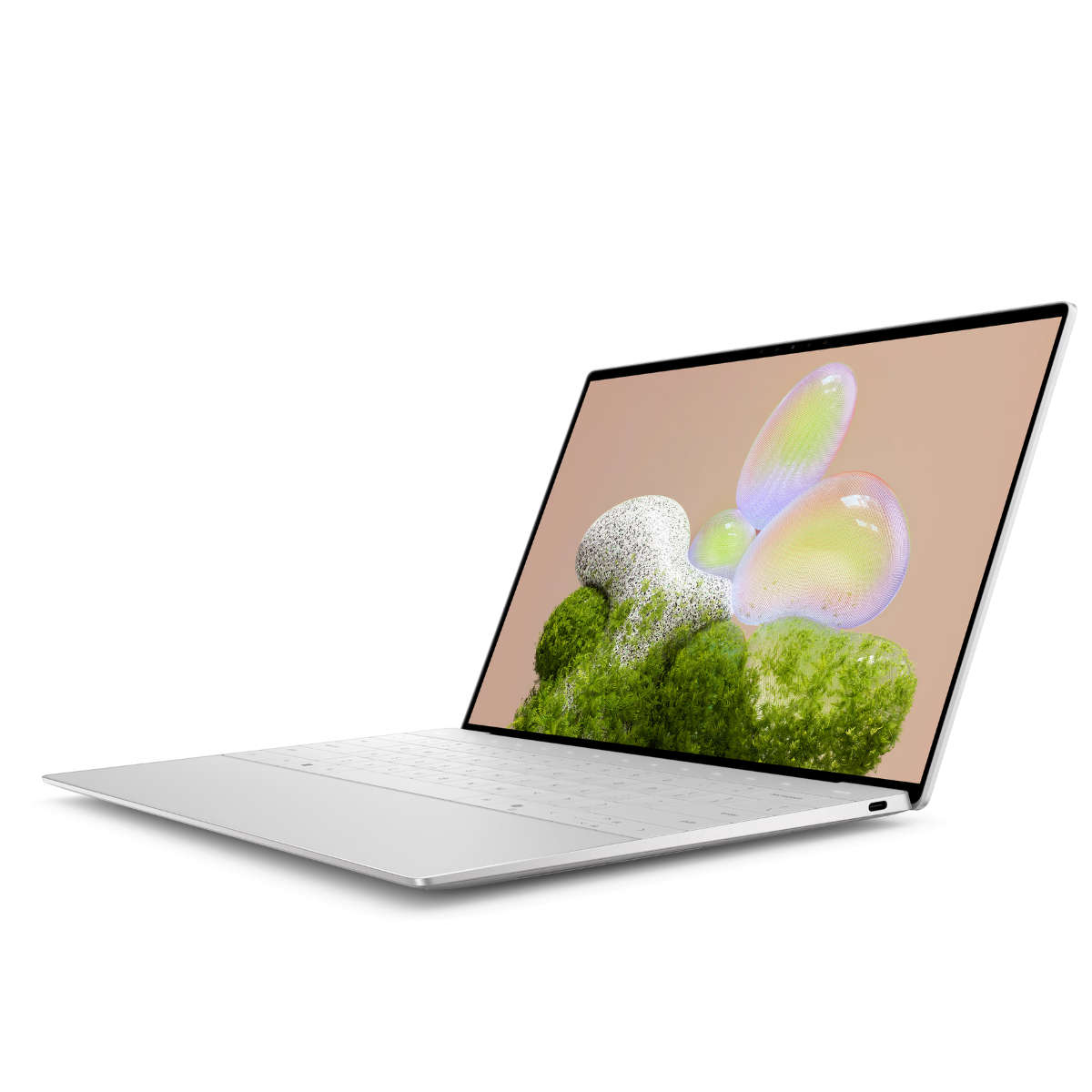
Price: Starts at $1,199.99 / £1,399 / AU$3,198.80
CPU: Up to Intel Core Ultra 9 288V
GPU: Intel Arc Graphics
RAM: Up to 32GB LPDDR5X
Screen: Up to 13.4-inch 3K (2880 x 1800) OLED, 60Hz
Storage: Up to 2TB SSD
Ports: 2x Thunderbolt 4 USB-C
Wireless: Wi-Fi 7, Bluetooth 5.4
Weight: 2.7lbs / 1.21kg
Dimensions: 11.6 x 7.8 x 0.58 inches / 29.5 x 19.9 x 1.48cm
Dell might be planning to rebrand the XPS line to 'Dell Premium', but the XPS 13 is still available and remains one of the brand's best laptops.
Pros
- Gorgeous 3K OLED screen
- Best-in-class battery life
- Strong overall performance
- Copilot+ ready
Cons
- Not enough ports
- Touchpad and touch bar hurt accessibility
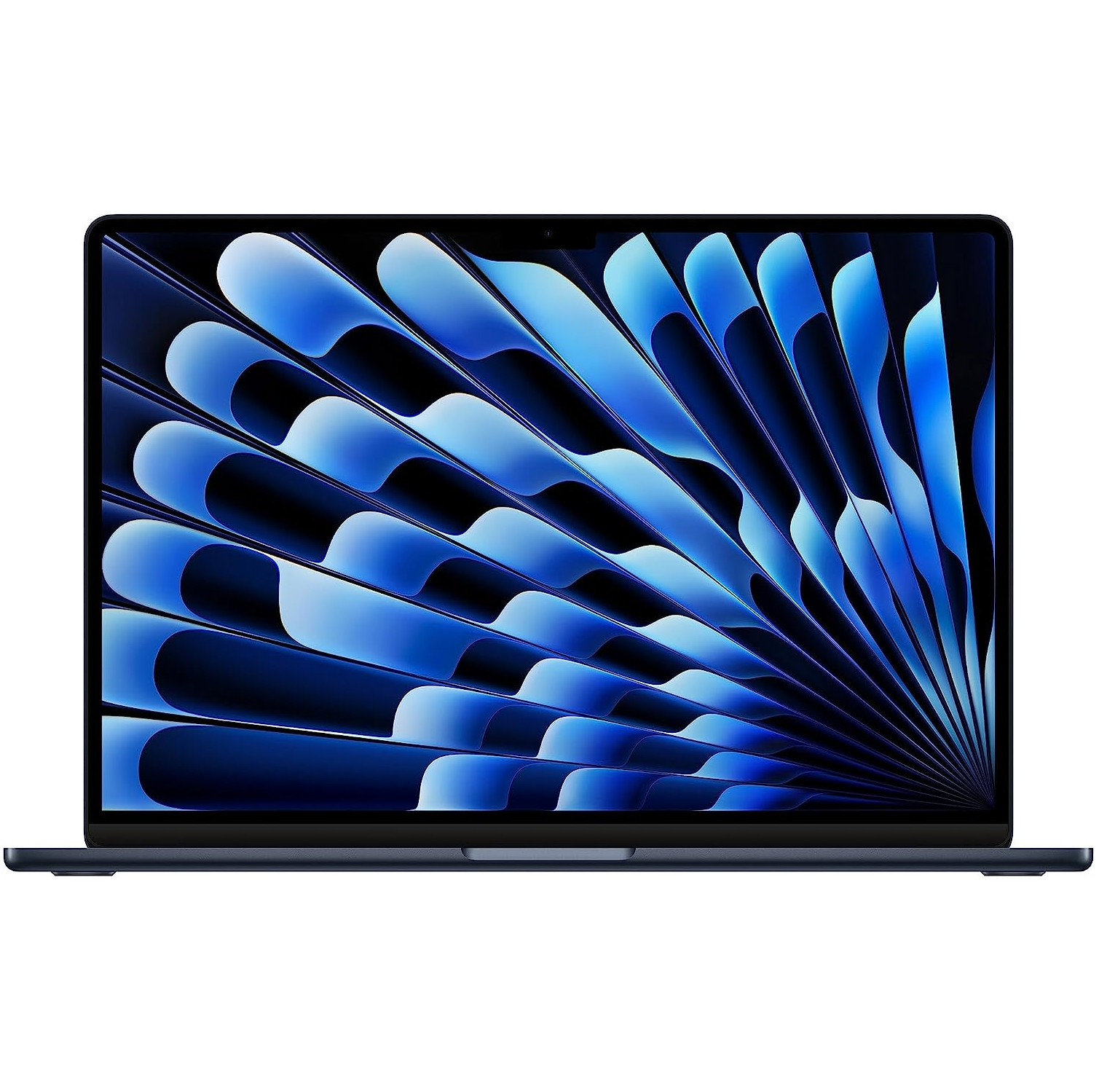
Price: Starts at $999 / £999 / AU$1,699
CPU: Apple M4 (10-core)
GPU: Up to Integrated 10-core GPU
RAM: Up to 32GB unified memory
Screen: 13.6-inch, 2560 x 1664 Liquid Retina display, 60Hz
Storage: Up to 2TB SSD
Ports: 2x Thunderbolt 4 USB-C, 3.5mm headphone jack, MagSafe 3
Wireless: Wi-Fi 6E, Bluetooth 5.3
Weight: 2.7 lbs / 1.24kg
Dimensions: 11.97 x 8.46 x 0.44 inches / 30.4 x 21.5 x 1.13cm
Apple's latest thin-and-light MacBook is the best yet, sporting the powerful new M4 chip and an upgraded design.
Pros
- M4 chip delivers top-notch performance
- Design is still the best
- All-day battery life
- Lower price
Cons
- Apple Intelligence is still a mixed bag
2025 has already been a banner year for laptops, and with some of the best laptops we've seen in ages hitting the scene in recent months, it can be hard to figure out which one is right for you. Dell has a new and improved iteration of its powerful Dell XPS 13, while Apple is fighting for the laptop crown with its latest M4 MacBook Air 13-inch - but which one is the better device?
To help you make an informed decision, we’re pitting the 2025 editions of both devices against each other, comparing them across all the most important areas. From price to performance, from design to display, we’re covering it all. Which one will win? Read on to find out.
Dell XPS 13 vs MacBook Air: Price
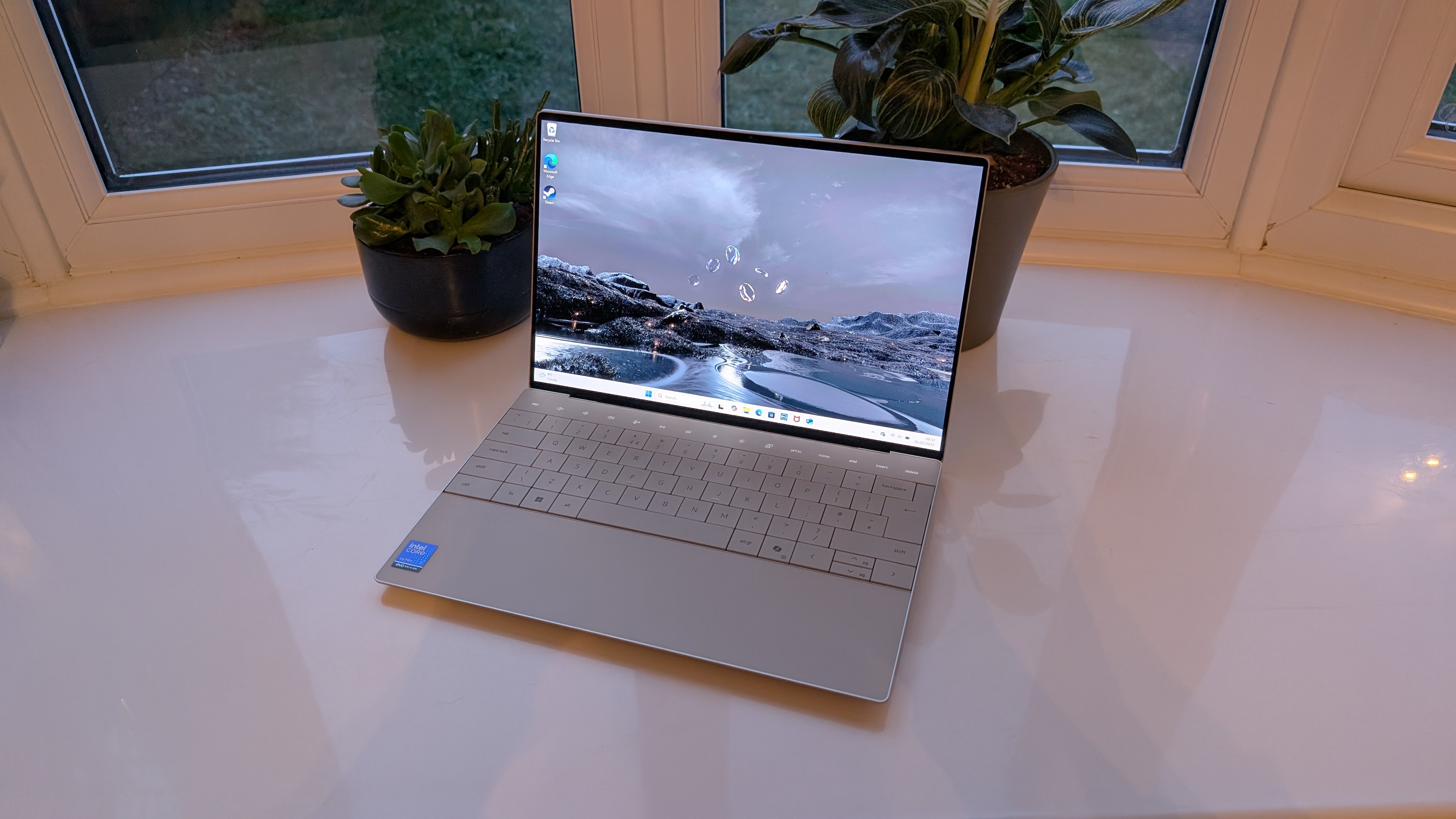
Although at first glance both laptops are aimed at the same demographic, the MacBook Air is a fair bit cheaper than the Dell XPS 13. With a starting price of $999 / £999 / AU$1,699, it's a decent chunk more affordable than Dell’s asking price of $1,099.99 / £1,299 / AU$2,797.30, particularly in regions outside of the US.
It’s worth noting that these prices are for the lowest specification of each model with the Dell XPS 13 - our current top pick of the best Dell laptops - going up to a whopping $2,249.99 / £2,348.98 / AU$3,898.40. Meanwhile, the MacBook Air 13-inch effectively maxes out at $2,199 / £2,199 / AU$3,229 for relatively similar specifications, so the price gap closes a bit at the higher end of configurations; this is because Apple aims to keep the base package price of its MacBooks as low as possible, but charges a lot more for add-ons like extra storage or RAM.
Regardless, the MacBook Air wins this round - its tightly controlled hardware ecosystem means you're simply getting a bit more bang for your buck with Apple's lightweight laptop.
- Winner: MacBook Air
Dell XPS 13 vs MacBook Air: Design
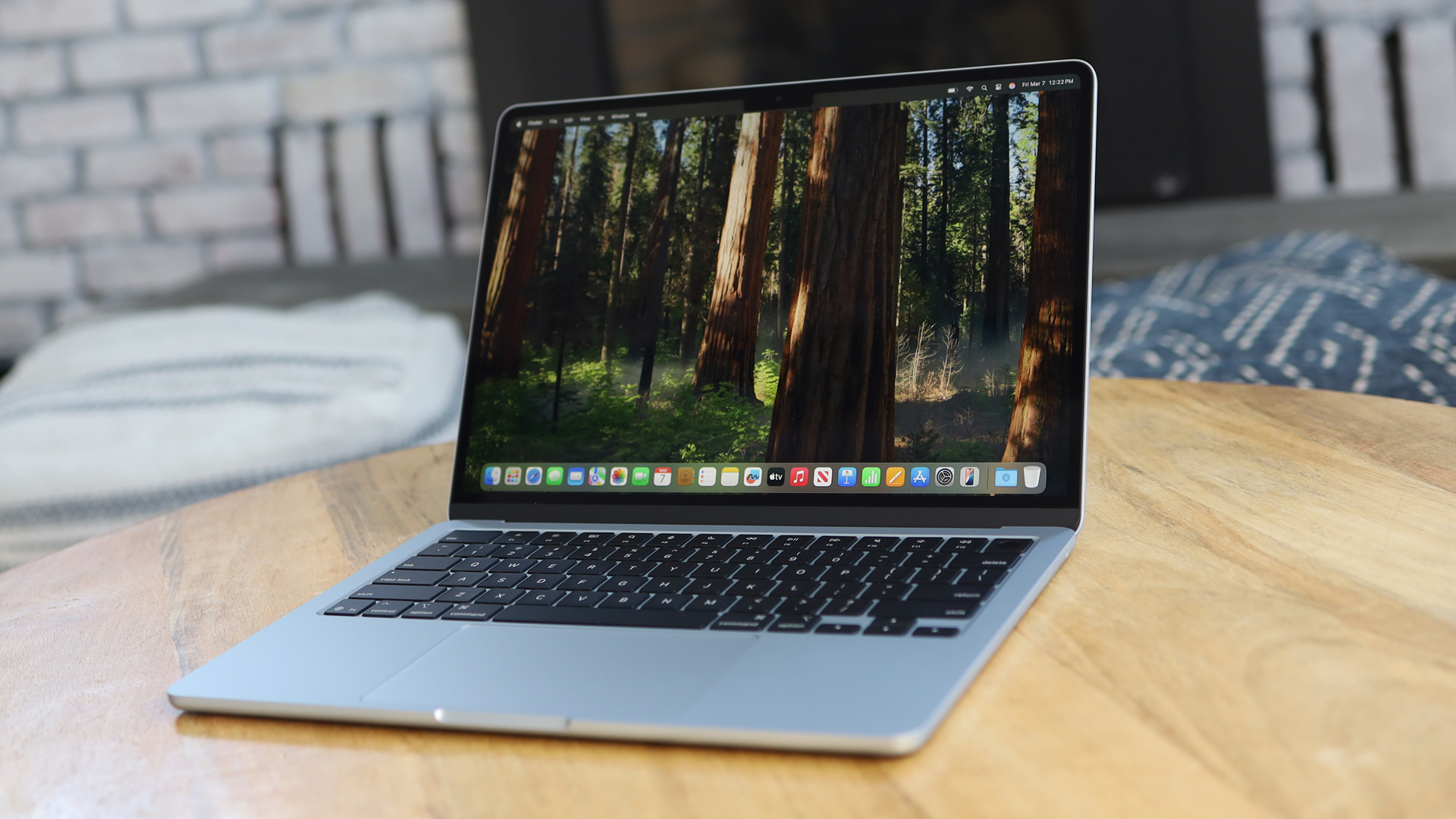
As we've come to expect from high-end laptops, both of these devices are absolutely stunning from a design perspective. The Dell XPS 13 comes packed into a lightweight, ultra-thin chassis that looks fantastic and is easy to take with you anywhere - without having to worry about your shoulders slowly starting to collapse under the weight of your laptop.
In our review, we found that the keyboard felt great to type on, but one notable downside our Computing Editor Christian Guyton highlighted was the ‘invisible’ touchpad - this poses an issue with accessibility for blind or partially-sighted users, as you can’t feel the difference between the palm rest and the actual touchpad. There's also a distinct lack of physical ports on the XPS 13, with only two Thunderbolt 4 USB-C ports - you’ll likely be relying on Bluetooth if you want to connect any peripherals.
Sign up for breaking news, reviews, opinion, top tech deals, and more.
In comparison, the MacBook Air also comes with a sleek chassis, which again looks breathtaking. It’s super light, weighing almost exactly the same as the XPS 13, making it a similarly great option to pop in your backpack and take on the go. The MacBook Air is actually thinner than the XPS 13, measuring in at 1.13cm to Dell’s 1.48cm - and while that sounds marginal, it's enough that you can notice the difference.
In testing, we found that the MacBook's keyboard was amazing to type on, with great key travel and responsiveness for such a thin device. The MacBook Air does suffer from a similar issue to the XPS 13 regarding its lack of ports, with only two Thunderbolt 4 USB-C ports, a 3.5mm headphone jack, and MagSafe 3 for charging. However, that's enough to ensure that the MacBook Air just barely wins this round; after all, you don’t have to sacrifice a USB-C port for charging.
- Winner: Macbook Air
Dell XPS 13 vs MacBook Air: Performance and display
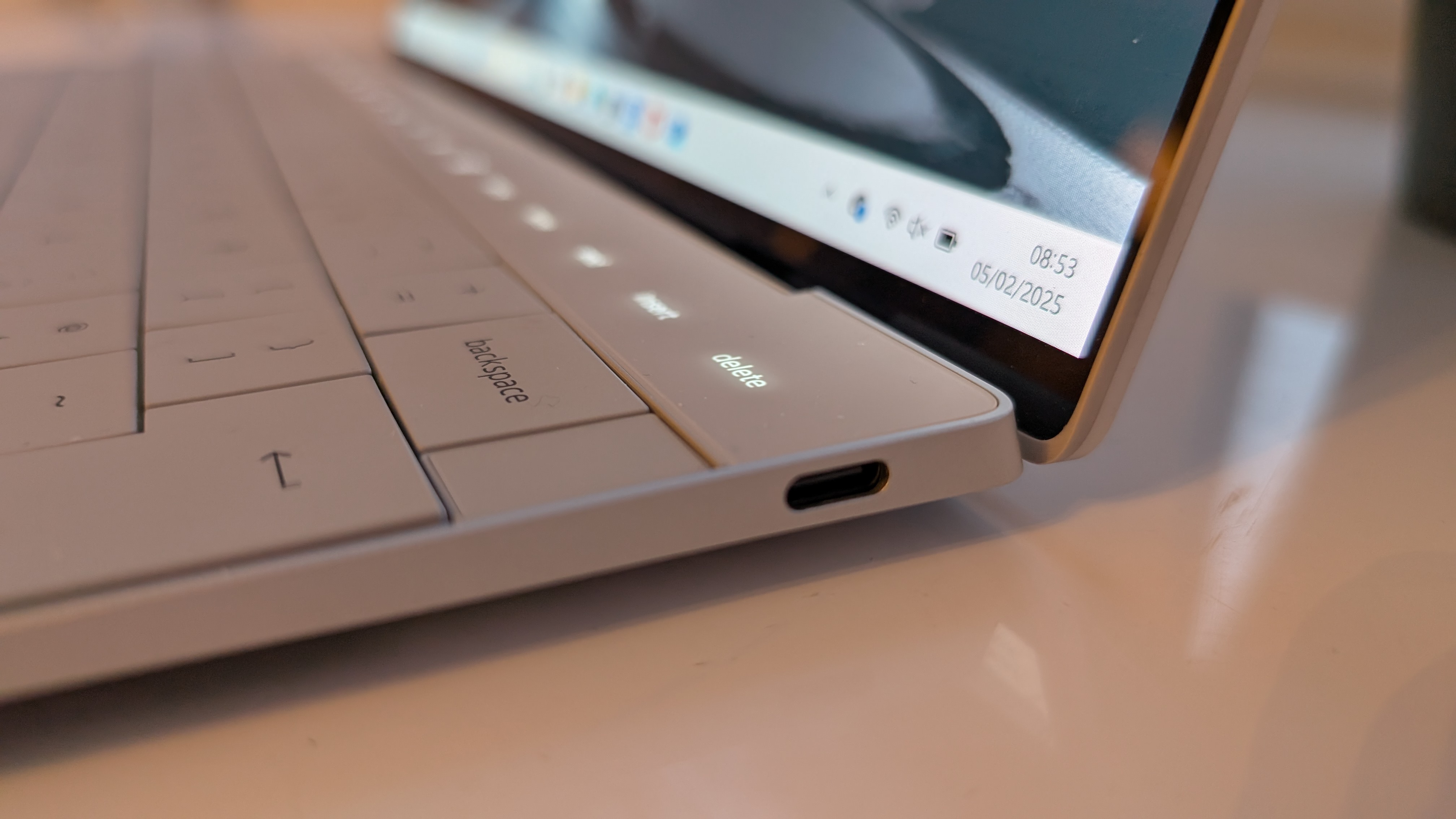
When we reviewed the Dell XPS 13, we were absolutely blown away, with it performing admirably across multiple areas throughout its entire testing period. It was great for real-world usage, easily coping with countless Chrome tabs, and also held up well when being put through its paces during our synthetic benchmarking process. While the fans did get a little noisy during the 3DMark graphics tests, this is to be expected, and it remained silent during all other usage.
We'll take a brief aside here to talk about on-device AI, since it's the current hot topic. Here, the XPS 13 is indisputably the winner, packing a 2nd-gen Intel Core Ultra chip with a superior neural processing unit (NPU) to Apple's M4 Neural Engine. You also get a more developed and fleshed-out AI experience in Windows 11 with Copilot, since Apple Intelligence arrived on the scene a lot later than Microsoft's AI helper.
The screen on the Dell XPS 13 is undeniably the standout feature. You get a top-spec 3K (2880 x 1800) InfinityEdge OLED touch display, which provides excellent picture quality and color reproduction. Even when conducting graphics benchmarking, which often results in some choppy framerates, it still looked fantastic.
Similarly, the MacBook Air performed exceptionally well, from everyday productivity usage to intensive benchmarking. No matter what we threw at it, it ran smoothly and silently, even running some triple-A games - something which would have been unimaginable on a MacBook Air even just a few years ago. Performance-wise, the base configuration edges out Dell's laptop thanks to its superior onboard graphics, but it's a close fight.
The MacBook Air display features a 13.6-inch Liquid Retina panel (Apple's signature display type, found on most of the best MacBooks and Macs) with a 2560 x 1664 resolution and 500 nits of sustained brightness. It is brilliant for everything from gaming to content creation or even watching movies - but the XPS 13's OLED panel is certainly the better screen, so this one ends up coming out as a draw.
- Winner: Tie
Dell XPS 13 vs MacBook Air: Battery life
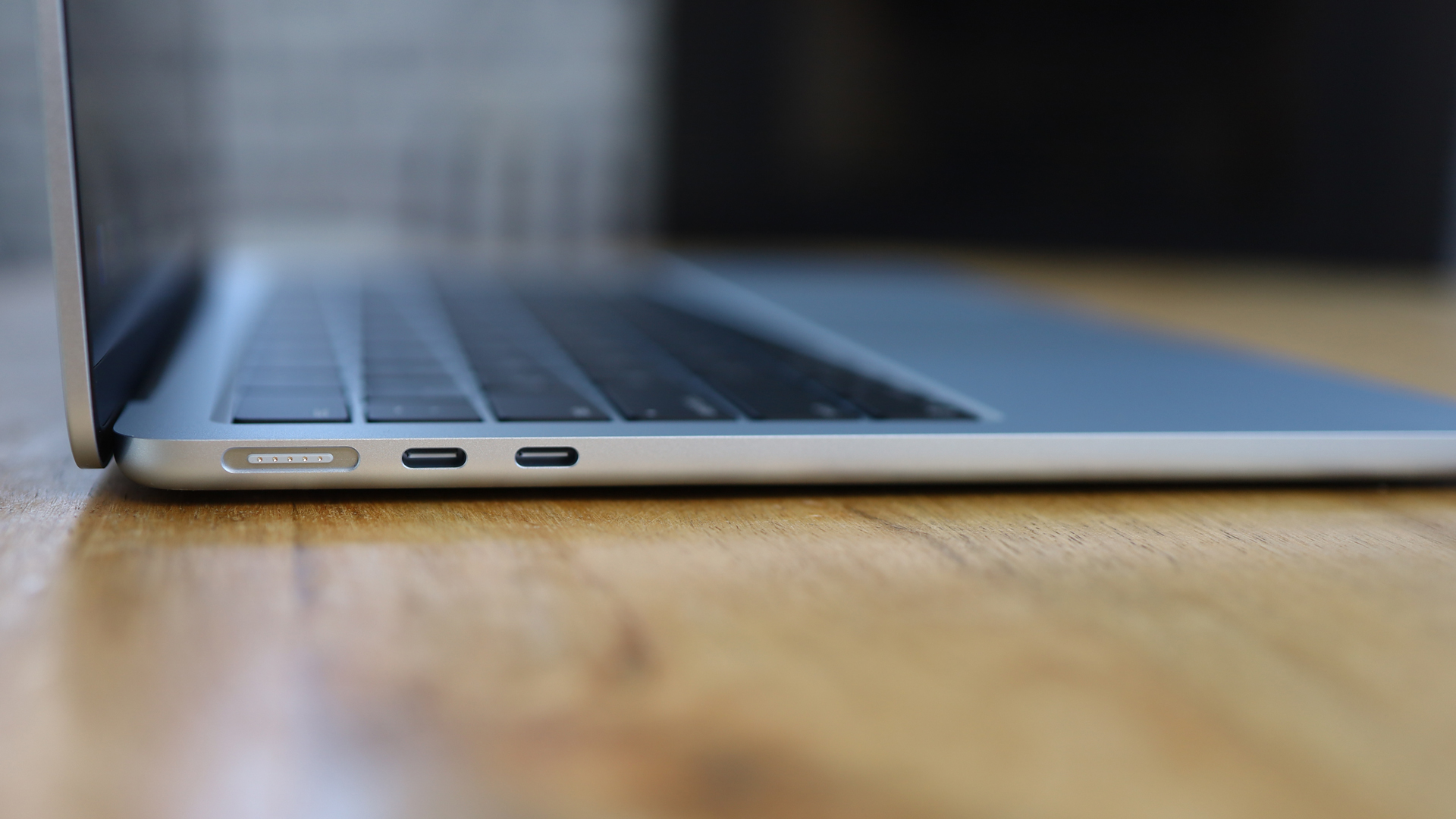
While both devices deliver great battery life, there's a decisive winner here. The Dell XPS 13 comes with a bold promise of 24-hour battery life - and in our review, we found that it delivered just that, giving us a whopping 23 hours and 26 minutes of usage in our TechRadar movie test. This laptop will easily see you through a full workday (or two, or three) and also charges super fast, going from empty to 80% in an hour while not being used.
On the other hand, Apple claims that the MacBook Air offers up to 18 hours of battery life when it comes to movie playback, but it delivered under 15 hours in our active web surfing benchmarking. Granted, that's still pretty darn good, but it's frankly dwarfed by the best-in-class battery life of the XPS 13. Again, this device will easily last you a full workday and then some, but it just doesn’t quite live up to the competition here. Another downside is that this device doesn’t charge as quickly either, taking 90 mins to reach 50% charge.
- Winner: Dell XPS 13
Which one should you buy?
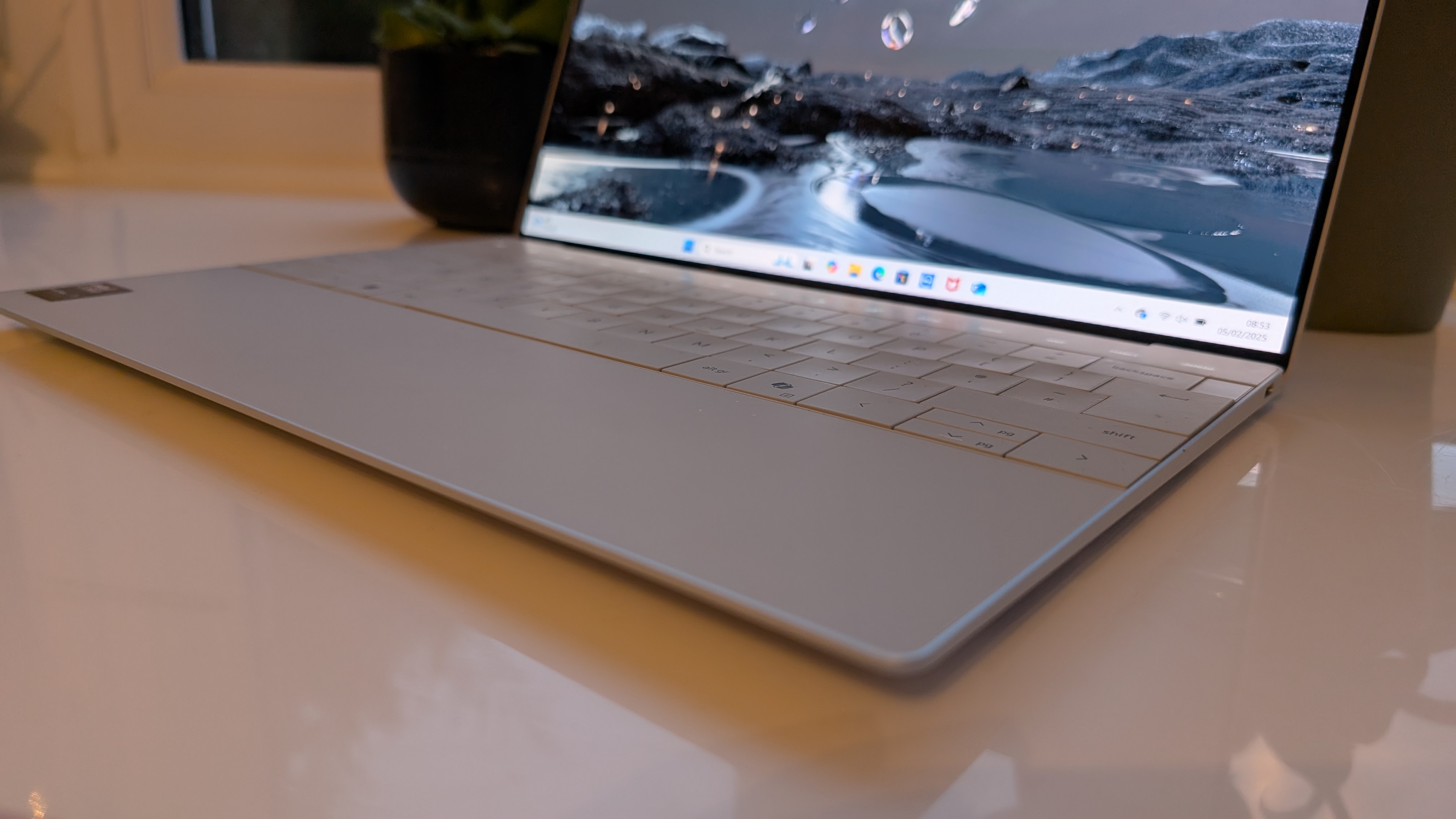
Although the MacBook Air technically won more categories, it’s hard to determine a clear overall winner between these two laptops. While the Dell XPS 13 decisively takes home the crown when it comes to battery life and display quality, the MacBook Air does offer very similar performance at a significantly lower price point while also offering more ports and a thinner chassis.
One key factor we haven't discussed here - since it largely comes down to personal preference - is operating system. Windows and macOS are hugely different, and if you're already accustomed to using one of them, switching to the other will be difficult and potentially confusing. It's also worth noting that the XPS 13 also offers somewhat better software compatibility than the MacBook Air, since it uses an x86-based Intel processor rather than an Arm-based M4 chip seen in the Air. If you have specific software needs, be sure to confirm that the required programs are compatible before making a purchase.
While both of these devices are absolutely fantastic options for those looking for a new laptop, which one you pick up should ultimately be based on your needs and how much you’re willing to spend. If you prefer Windows and want something that will last you days without needing a charge, then the Dell XPS 13 is likely the one for you. On the other hand, if you’re hoping to save some money where you can but still need a high-end device, then the M4 MacBook Air 13-inch will probably suit you better.

Jasmine is a gaming hardware and tech journalist with an appreciation for all things others dare to call boring or complicated.
Previously of GamesRadar and The Mirror, Jasmine has reviewed and covered hundreds of devices from laptops to sound bars, monitors to cameras and almost everything in-between.
In her spare time, Jasmine enjoys playing games that make her rage and building PCs, which also makes her rage – as well as spending time with her three cats. Crazy cat lady in the making!
You must confirm your public display name before commenting
Please logout and then login again, you will then be prompted to enter your display name.